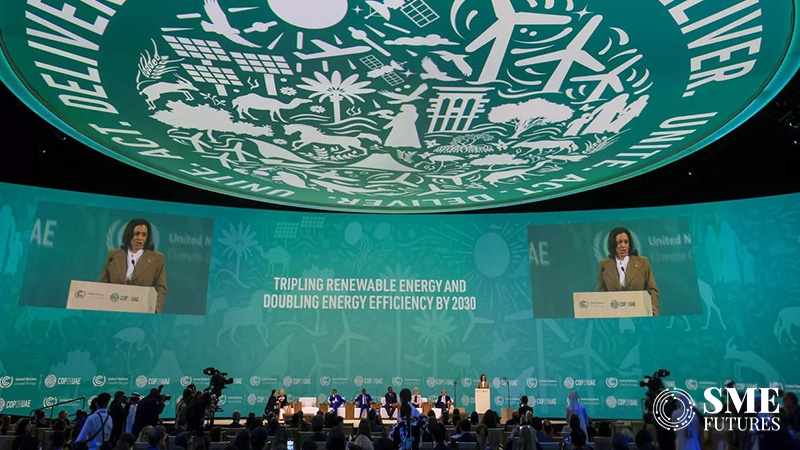India and China both on Saturday refrained from signing the pledge at the COP28 climate summit to triple the world’s renewable energy capacity by 2030 even though New Delhi already committed to it as part of its G20 presidency.
During the UN’s climate talks here, 118 countries committed to tripling the global renewable energy capacity by 2030 in a highly endorsed initiative. This ambitious goal aims to reduce the reliance on fossil fuels in the world’s overall energy production. The countries that backed the pledge included Japan, Australia, Canada, Chile, Brazil, Nigeria, and Barbados.
Although China and India have expressed endorsement for the threefold increase in renewable energy by 2030, neither of them formally supported the comprehensive pledge on Saturday. This commitment involves scaling up clean power alongside a decrease in the utilisation of fossil fuels.
The pledge called for phase down of unabated coal power and putting an end to the financing of new coal-fired power plants. “Unabated” fossil fuels generally refer to the continued use of coal, oil and gas without efforts to curtail emissions. Nonetheless, a universally accepted and precise definition of this term is currently lacking.
The International Energy Agency says the world must triple its renewable energy capacity and double the rate of energy efficiency by 2030 to drive down demand for fossil fuels and limit global warming to 1.5 degrees Celsius by the end of the century.
India’s 14th National Electricity Plan (NEP) sets the country on the path to more than triple its renewable energy capacity by 2030, but New Delhi needs a whopping USD 293 billion to achieve this, according to a report released by global energy think tank Ember last week. Ember’s analysis reveals that India requires an additional financing of $101 billion (one billion = Rs 100 crore) to further expand its renewable energy capacity and align with the IEA’s proposed net-zero scenario. India’s current goal is to reach 500 GW of installed electricity capacity from non-fossil fuel sources by 2030.











